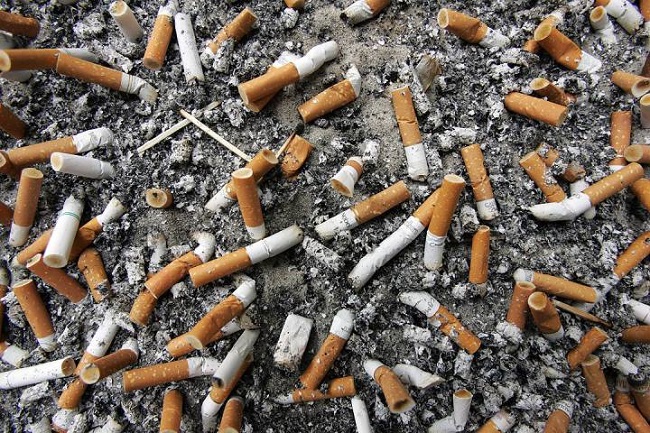The World Health Organisation Framework Convention on Tobacco Control (WHO FCTC) says cigarette butts have become the most discarded waste item worldwide, with some 4.5 trillion thrown away each year, representing £1.69 billion of toxic trash annually.

WHO-FCTC said various studies indicated that this was compounded and accelerated as bans on indoor smoking took effect in many of the world’s cities and countries over the past two decades.
WHO FCTC is a global health treaty that advocates for the control of tobacco production, sale and use, as a way of reducing tobacco-related illnesses, deaths, environmental degradation and poverty across the world.
The UN tobacco control treaty watchdog warned that apart from deforestation to soil degradation and pollution, tobacco production and its use by consumers is “tremendously destructive” for the environment.
Dr Vera e Silva, the Head of the WHO FCTC Secretariat, said, however, that control measures could help curb its negative environmental effects, including the damaging impact of climate change.
“People often immediately think of the health impact that tobacco has, but there is not enough awareness of how tremendously destructive it is for the environment too, on land, under water and in the air,” she said.
She stressed that high amount of deforestation occurs, not only to create space for tobacco farming, but also because a lot of timber is required for the drying process of tobacco leaves after they are harvested.
Estimates show that tobacco farming causes up to five per cent of global deforestation, with 200,000 hectares of natural wood biomass loss each year.
“Studies indicate that tobacco growing could be up to 10 times more aggressive than all other deforestation factors,” e Silva noted.
In addition, the report stated that tobacco crop production led to accelerated soil degradation, as it stripped the earth of nutrients such as nitrogen, phosphorus and potassium faster and more extensively, than other major food and cash crops.
She said environmental pollution from tobacco started well before cigarettes were discarded, during the production phase, as tobacco crops required large amounts of chemical fertilisers, pesticides and growth regulators that pollute the ground, nearby waterways and aquifers.
“Among the pesticides used to grow tobacco are some highly toxic products that affect animals and humans alike, many of which are banned, or being phased out in several countries,” she explained.
The UN tobacco control watchdog also recommended that parties to the treaty urgently adopt regulations that would make the industry responsible for the impact that it had on the planet.
“Tobacco giants have been lobbying worldwide for policies that exonerate them from any environmental responsibility but ultimately, tobacco producers should be responsible for liability, economic costs and provision of information on the environmental impacts of their activities.”
She explained that “governments need to understand that tobacco control is a major component of any effective and holistic environmental protection effort they want to undertake”.
By Prudence Arobani
